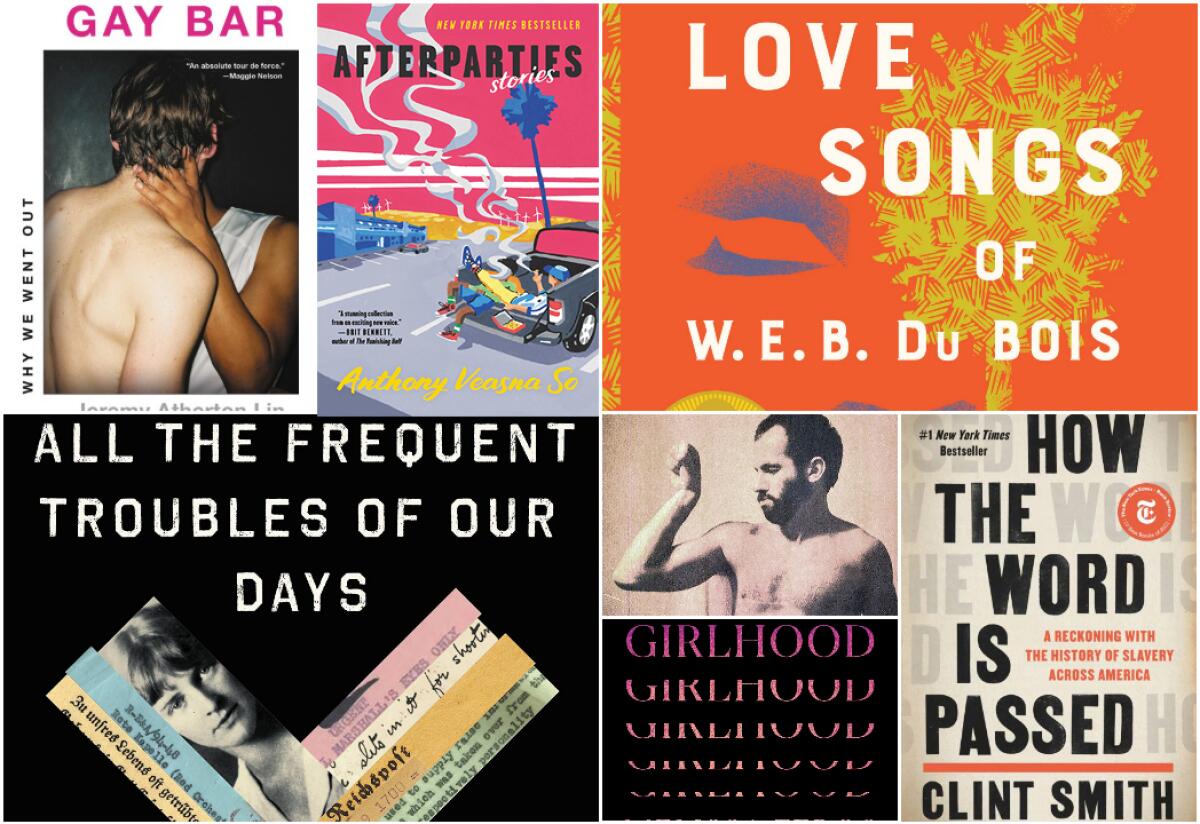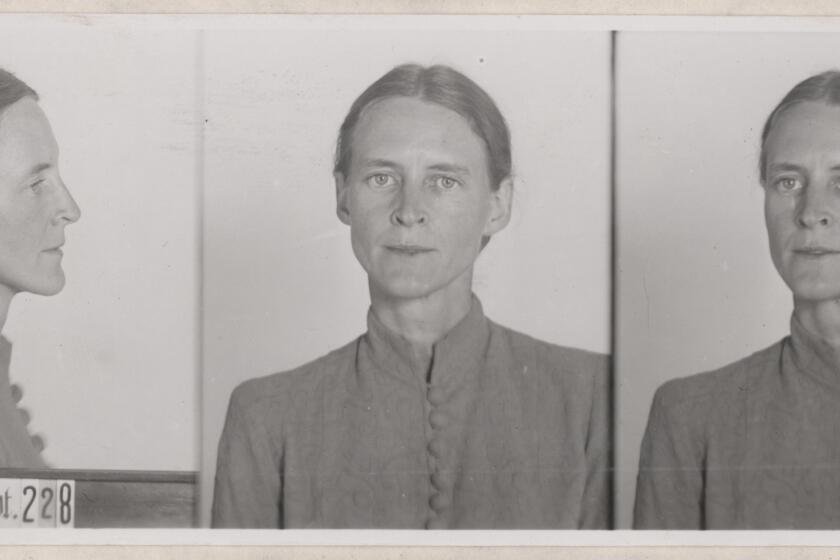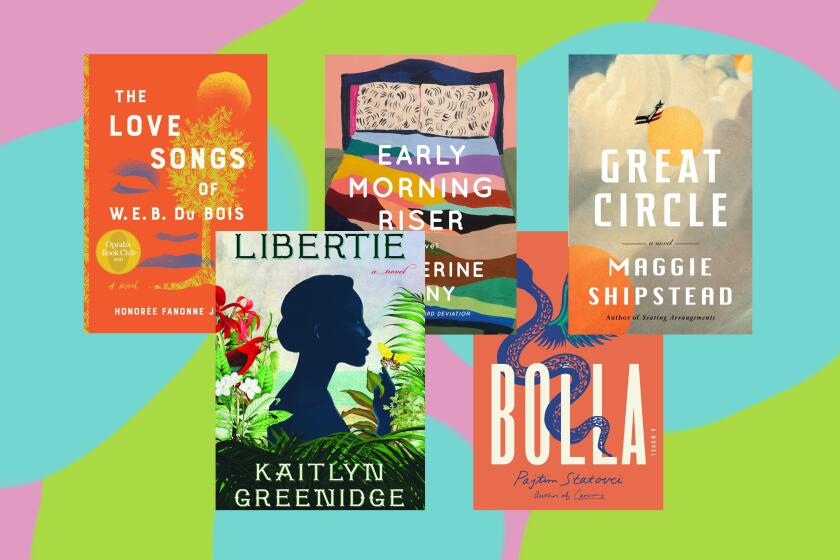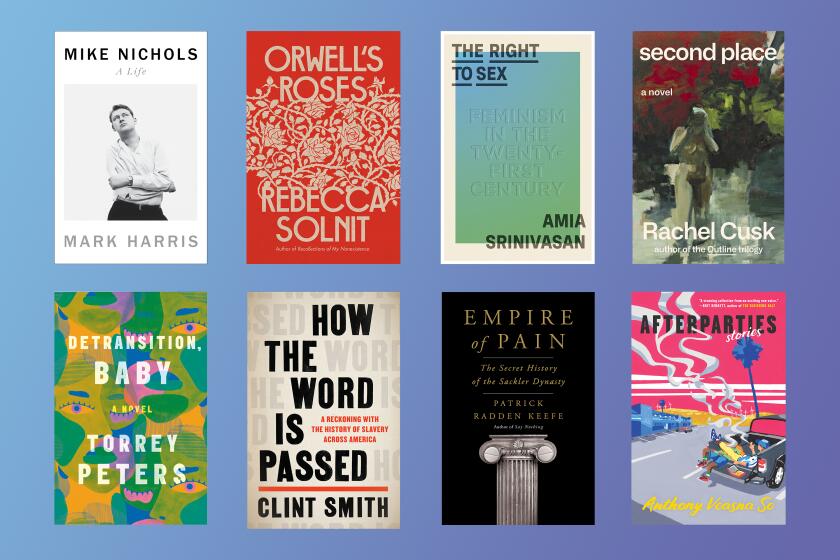Anthony Veasna So, Diane Seuss among National Book Critics Circle Award winners

Prizes
The 2022 National Book Critics Circle Awards
If you buy books linked on our site, The Times may earn a commission from Bookshop.org, whose fees support independent bookstores.
Honorée Fanonne Jeffers, Anthony Veasna So and Clint Smith are among this year’s seven winners of National Book Critics Circle Awards for work published in 2021, announced Thursday during a virtual awards ceremony by the organization of American book critics.
Jeffers won the prize in fiction for “The Love Songs of W.E.B. Du Bois,” her debut novel, about Black history and coming of age in the South.
“This is a complete shock,” said Jeffers, covering her mouth in disbelief and wiping tears from her eyes as Jane Ciabattari, the fiction committee chair, announced her name. “I didn’t want to get cute, I was just going to wear a T-shirt.”
Through tears, Jeffers thanked the “cherished Georgia women of my maternal line,” including her mother and late sister; the historians and writers “who provided the spine for this book”; W.E.B. Dubois, “whose spirit hopefully blessed this book”; and Oprah Winfrey for choosing the novel for her book club. “[She] spoke my name with grace and kindness, and completely changed my life for the better.”
So, who died in December 2020, was awarded the John Leonard Prize for a first book, presented for his posthumous short story collection, “Afterparties.” The book follows a community of Cambodian Americans living mostly in California’s Central Valley and deals with reincarnation, the inherited trauma of the Khmer Rouge era, queerness and the intricacies of family life. The judges commended “Afterparties” for its “vigor, originality, and good humor” and expressed their condolences. “The NBCC joins So’s loved ones and readers in celebrating his work and mourning his loss.”
Friends and family mourn Anthony Veasna So, whose highly anticipated debut story collection, “Afterparties,” brings refugee Stockton to life.
Accepting the award on So’s behalf was his sister, Samantha So Lamb. “After my brother’s death, [the team at Ecco] really wrapped around us, myself included, my family,” she said, her voice cracking with emotion. “My brother is a superstar, and our team made sure of it. I’m grateful that my brother was able to share his voice and uplift the Cambodian American and LGBTQ communities before he passed.”
Smith received the nonfiction award for “How the Word Is Passed: A Reckoning With the History of Slavery Across America,” a work that explores the legacy of slavery and its lasting effect on U.S. history.
“When I wrote this book, I set out to try to write a book that I felt like I needed when I was 16, sitting in my American history class,” said Smith in his speech. “I’m thinking of 16-year-old Clint today, sitting in that American history class, and I’m thinking of my grandfather’s grandfather, who was born enslaved. And I’m thinking too of Toni Morrison, who we’ve invoked tonight and was always on my mind and heart.”
The poetry prize went to Diane Seuss for “frank: sonnets,” a deeply personal collection that explores the author’s life and her search for some semblance of “beauty or relief.” In the biography category, Rebecca Donner won for “All the Frequent Troubles of Our Days: The True Story of the American Woman at the Heart of the German Resistance to Hitler.” At its center is Donner’s great-great-aunt, Mildred Harnack, an American woman executed by the Nazis for leading an underground resistance group in Germany during World War II.
How a novelist cracked the real-life story of her Nazi-fighting great-great-aunt.
Jeremy Atherton Lin took home the autobiography prize for “Gay Bar: Why We Went Out,” a transatlantic tour of the gay bars that shaped the author’s queer identity, which weaves together memoir, criticism and history. In the criticism category, Melissa Febos won for “Girlhood,” a collection of stories about the values that shape girls and the women they become. Judges called it an “incisive, vibrant critique of what it means to grow up female.”
Author and literary critic Merve Emre and writer and distinguished USC professor Percival Everett also were honored during the event as recipients, respectively, of the Nona Balakian Citation for Excellence in Reviewing and the Ivan Sandrof Lifetime Achievement Award. The Cave Canem Foundation also was honored, receiving the inaugural Toni Morrison Achievement Award.
As 2021 nears an end, we asked four book critics to pick their favorites from a very fruitful year. Here are Bethanne Patrick’s top five novels
The full list of finalists:
Autobiography
Hanif Abdurraqib, “A Little Devil in America: Notes in Praise of Black Performance”
Jeremy Atherton Lin, “Gay Bar: Why We Went Out”
Rodrigo Garcia, “A Farewell to Gabo and Mercedes: A Son’s Memoir of Gabriel García Márquez and Mercedes Barcha”
Doireann Ní Ghríofa, “A Ghost in the Throat”
Albert Samaha, “Concepcion: An Immigrant Family’s Fortunes”
Biography
Susan Bernofsky, “Clairvoyant of the Small: The Life of Robert Walser”
Keisha N. Blain, “Until I Am Free: Fannie Lou Hamer’s Enduring Message to America”
Rebecca Donner, “All the Frequent Troubles of Our Days: The True Story of the American Woman at the Heart of the German Resistance to Hitler”
Mark Harris, “Mike Nichols: A Life”
Alexander Nemerov, “Fierce Poise: Helen Frankenthaler and 1950s New York”
Criticism
Melissa Febos, “Girlhood”
Jenny Diski, “Why Didn’t You Just Do What You Were Told?: Essays”
Jesse McCarthy, “Who Will Pay Reparations on My Soul?: Essays”
Mark McGurl, “Everything and Less: The Novel in the Age of Amazon”
Amia Srinivasan, “The Right to Sex: Feminism in the Twenty-First Century”
Fiction
Joshua Cohen, “The Netanyahus”
Rachel Cusk, “Second Place”
Sarah Hall, “Burntcoat”
Honorée Fanonne Jeffers, “The Love Songs of W.E.B. Du Bois”
Colson Whitehead, “Harlem Shuffle”
Nonfiction
Patrick Radden Keefe, “Empire of Pain: The Secret History of the Sackler Dynasty”
Joshua Prager, “The Family Roe: An American Story”
Sam Quinones, “The Least of Us: True Tales of America and Hope in the Time of Fentanyl and Meth”
Clint Smith, “How the Word Is Passed: A Reckoning With the History of Slavery Across America”
Rebecca Solnit, “Orwell’s Roses”
Poetry
B.K. Fischer, “Ceive”
Donika Kelly, “The Renunciations: Poems”
Rajiv Mohabir, “Cutlish”
Cheswayo Mphanza, “The Rinehart Frames”
Diane Seuss, “Frank: Sonnets”
John Leonard Prize
Ashley C. Ford, “Somebody’s Daughter: A Memoir”
Jocelyn Nicole Johnson, “My Monticello: Fiction”
Torrey Peters, “Detransition, Baby”
Larissa Pham, “Pop Song: Adventures in Art & Intimacy”
Anthony Veasna So, “Afterparties: Stories”
Devon Walker-Figueroa, “Philomath: Poems”
Finalists for the prizes, whose winners will be announced March 17, include books by Hanif Abdurraqib, Torrey Peters, Sam Quinones and Sarah Hall.
More to Read
Sign up for our Book Club newsletter
Get the latest news, events and more from the Los Angeles Times Book Club, and help us get L.A. reading and talking.
You may occasionally receive promotional content from the Los Angeles Times.










